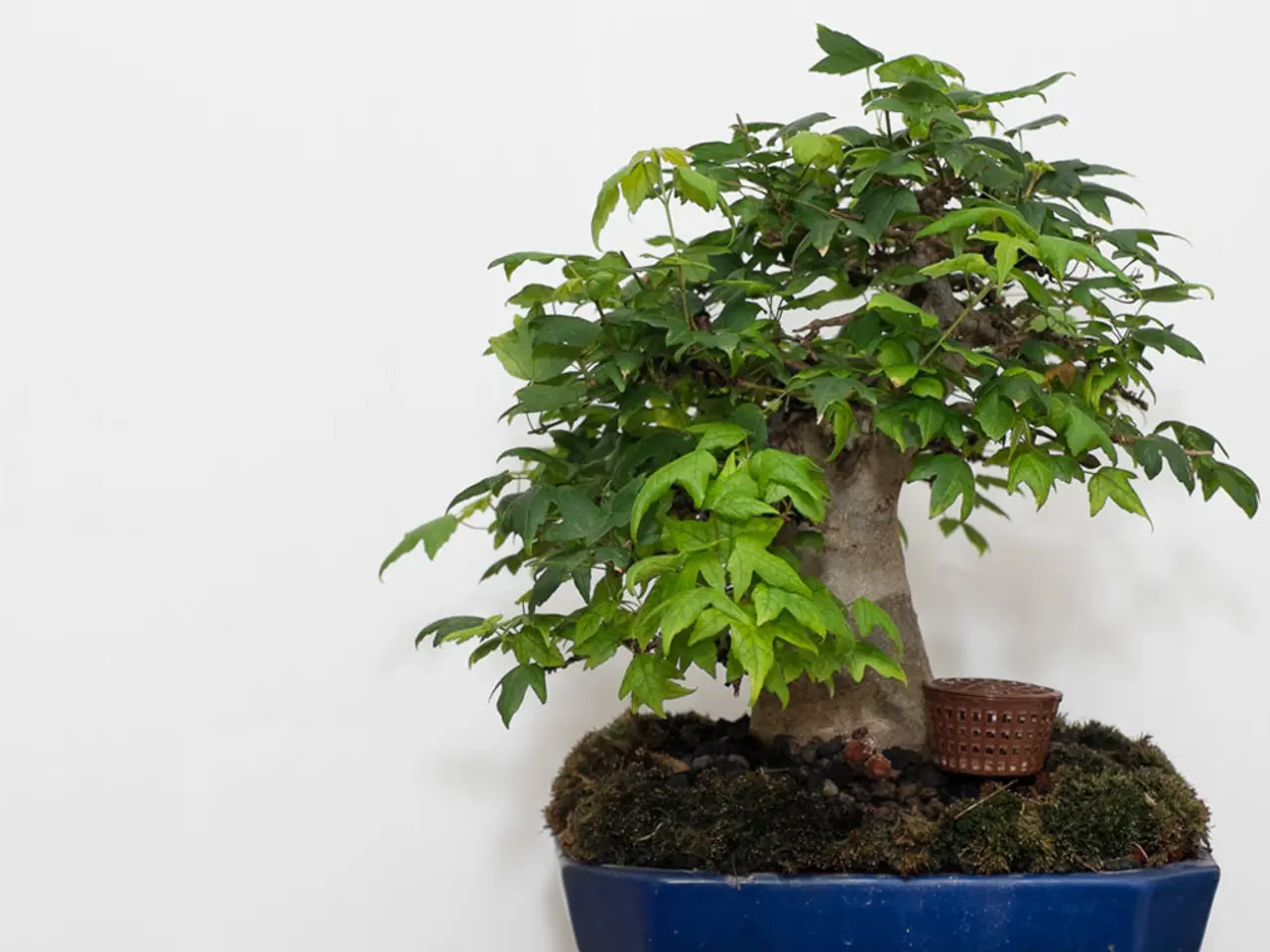Bonsai Tree's Indoor Lifespan: Duration of Life for Indoor Bonsai Trees
Bonsai trees, miniature replicas of full-sized trees, have captivated garden enthusiasts for centuries. With the right care and attention, these fascinating plants can live for decades, even over a century. Here's a guide to understanding the key factors that contribute to a bonsai tree's longevity and overall health.
First and foremost, it's essential to check the soil of a bonsai tree before watering. Dry soil indicates the need for water, while moist soil suggests that it should be left alone. Using a watering can with a long spout can help control the amount of water given to the tree.
The lifespan of bonsai trees varies widely depending on the species and care. For instance, Juniper bonsai, with proper care and growing conditions, can live over 100 years. Ginseng Ficus bonsai typically live between 50 to 100 years, with some surviving for centuries. Desert Rose bonsai (Adenium obesum) can live for decades, thriving in bright, direct sunlight.
The species and genetics of a bonsai tree play a significant role in its lifespan. Some tree species naturally live longer and adapt better to bonsai cultivation. Azalea, cherry, cypress, ficus, fig, kendar, and pomegranate are popular types of bonsai trees known for their longevity.
Proper care and maintenance are also crucial. Regular watering, pruning, and pest control are essential. For example, junipers cannot regrow from bare wood, so pruning must preserve some foliage. Well-drained soil prevents root rot and supports healthy growth. Fertilizing a bonsai tree regularly helps it reach its full potential lifespan, and using a fertilizer specifically designed for bonsai trees is important for their health and longevity.
Growing conditions also impact a bonsai tree's lifespan. Tropical bonsais like ginseng ficus prefer higher humidity and warmer climates, while many bonsai thrive best when mostly kept outdoors but require shelter in harsh weather.
Regularly inspecting a bonsai tree for pests and diseases and treating them promptly is crucial for maintaining its health. Common pests include aphids, scale insects, mites, and whiteflies. Bonsai trees are susceptible to diseases such as root rot, powdery mildew, and leaf spot.
The environment where the bonsai tree is kept greatly affects its health and lifespan. The ideal temperature range for a bonsai tree is between 60 and 80 degrees Fahrenheit. Bonsai trees are sensitive to temperature changes and should not be allowed to freeze, especially in cold winter areas.
In summary, with attentive care suited to their species-specific needs, bonsai trees can live from decades to over a century. The oldest Bonsai tree in the world, a ficus bonsai tree in Crespi, Italy, is over 1000 years old. Proper care, including regular fertilization, pruning, and pest control, can help prolong the life of a bonsai tree and promote new growth. Watering in the morning allows leaves to dry before nightfall, preventing potential moisture-related issues.
Remember, caring for a bonsai tree is a rewarding experience that offers a unique opportunity to cultivate and nurture a living work of art. With the right knowledge and dedication, you can enjoy the beauty of a bonsai tree for many years to come.
- In addition to understanding the soil conditions, maintaining a bonsai tree's health also requires keeping up with science-backed techniques in health-and-wellness, such as regular pruning and pest control.
- When considering the purchase of a bonsai tree, it's important to research the lifespan of different species, as fitness-and-exercise enthusiasts might appreciate the prospect of nurturing a long-lived miniature tree, like a Juniper bonsai that can live over 100 years.
- For a fully flourishing life-and-lifestyle experience, home-and-garden enthusiasts could explore the world of bonsai trees, as caring for a bonsai tree can be a unique way to engage in mindful growth, while also adding a touch of nature to one's living space.




